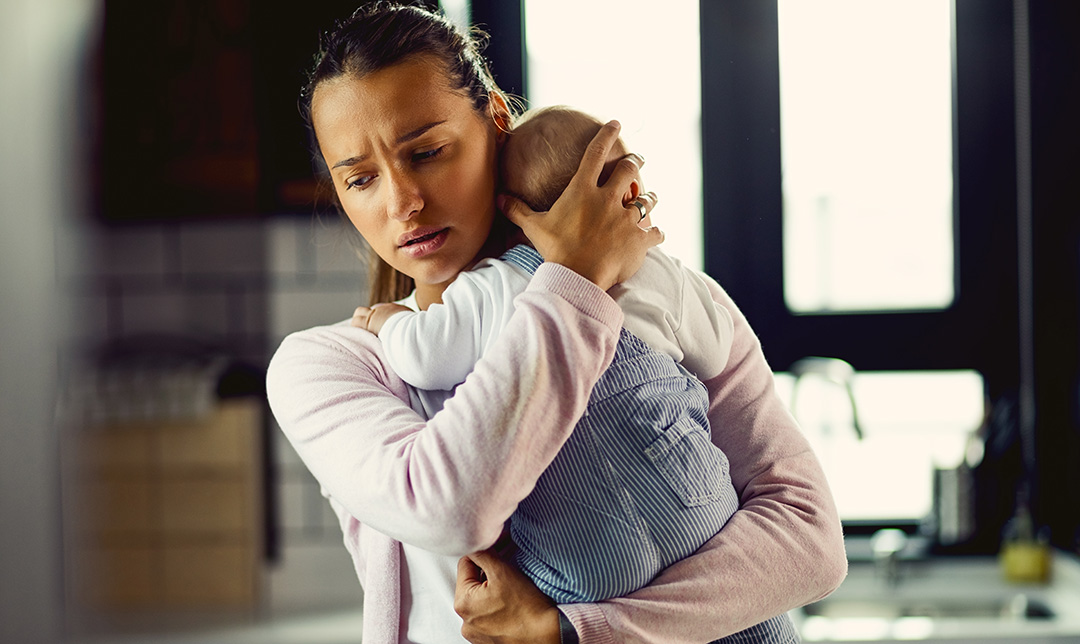To explore these worries, Rosie Nice consulted some experts: Rachel Jackson, Founder & CEO of A Different Me, who supports working parents, Emma Menzies, Fertility at Work Coach and Consultant, and Co-Host of the In/Fertility in the City podcast, and her own stepdaughter Emily, soon returning to work after her first baby.
The top 10:
- Childcare: Leaving my child. Will they be happy in the childcare we chose? Am I doing the right thing?
- Finance - Childcare costs. The BBC reported recently that the annual cost of a full-time nursery for a child under two in Great Britain averages £14,836. Despite additional support announced in the latest budget, parents are still worried. One in four parents said their childcare costs exceed 75% of their take-home pay, according to a survey of 24,000 parents by the charity, Pregnant then Screwed.
- Logistics: How will I cope? How will I leave the house, manage the drop-off and get to work on time (not covered in breakfast!) Will I get away on time? How will my partner and I share responsibilities?
- My job: Do I still have the skills to be successful? A survey published by TENA found almost a quarter of new mums said the working environment they returned to was “completely different”.
- My Team: Will I fit in? Will I still feel part of the team because I won’t make it to socials? What will people think if I leave ‘early’? Will they think I’m not committed?
- Flexibility: Will I be able to work flexibly, and what does that actually mean? What if my baby is sick and needs me? How will we balance work and family time? Will going part-time ultimately mean I do 5 days’ work in less time, for less money?
- Confidence: I don't feel as confident. I have changed and I feel tired and vulnerable. Rachel Jackson says, "I called my company A Different Me in recognition that you are a different person to the one that left for maternity leave. It takes time to get comfortable with your new identity as a working parent".
- My manager: Will they understand and support my new situation? Will I need to prove myself, and how I can make this work? Will I be judged negatively against my peers if they have progressed while my skills have stagnated or even regressed?
- Career development: Can I still be ambitious and have a family? Will my development be on hold? Will I be discriminated against, or side-lined for promotions and other opportunities? I cannot see anyone around me doing this.
- Guilt: I feel guilty about going back to work. I feel guilty about not being at home. I feel guilty that I want to go back to work. I feel guilty about not being able to work enough. I feel guilty that I may enjoy getting some independence and freedom back.
Emma Menzies, herself a new mum, says, “Fundamentally, mums feel constantly burdened by guilt, a sense of not being or doing enough at work or home, and a fear of being judged in the playground and the office. Then they tend to overcompensate at home and work, which can be a catalyst for burnout. “
The list of worries is long and dispiritingly similar to when I had my first baby 28 years ago, but why does this matter? And what can workplaces do to help?
According to the most recent Office of National Statistics UK labour market figures, 1.75 million people have given up work to care for family, and 84% of these are women. In the last year alone, 43,000 women left the workforce.
The Careers After Babies report published by That Works For Me found that while 98% of women want to return to work after having children, 85% leave the full-time workforce within three years, and 19% leave work completely, due to lack of flexibility and burnout. Furthermore, the number of female managers drops by 32% after having children, and the number in admin roles increases by 44%, suggesting women are ending up in lesser-skilled roles. The report concluded, “The deluge between what women need and what businesses are offering is vast”.
All this represents a huge waste of talent and experience whilst, according to The Week, “Britain is in the grip of an employment crisis, with labour shortages being the most urgent problem facing the UK economy right now.”
What can workplaces do?
According to Rachel Jackson, who has 2 small children, the whole maternity experience is often badly handled because of poor processes and inexperienced managers.
Businesses need to understand the experience of returning to work within their organisation. How do they respond when mums tell them they are pregnant? What happens when they go on maternity leave, how do they keep in touch, manage their return and support them once they are back? Organisations need to identify best-practice processes, clarifying how they want to treat their people, and then make sure these policies are reflected in people’s everyday experiences. Offering coaching and mentoring, with an established support network, can make all the difference.
Flexibility is key. Simon Kelleher, from the charity Working Families, says companies that do not embrace flexible working will face recruitment and retention problems. A YouGov poll commissioned by Working Families and SF Recruitment found that flexibility was as important as salary to mothers, and second only to pay for fathers.
In return, the best organisations will attract and retain experience and talent. They can develop their leadership pipelines with more senior women, taking real steps to reduce their gender pay gap, gain a reputation as being fair and supportive, and reap the benefits of a more inclusive, diverse workplace with engaged and cared-for employees.
Rosie Nice is the founder of MAGIC Coaching and is the author of the new book, The MAGIC Happens in the Silence, a guide to the art of reflective coaching.











